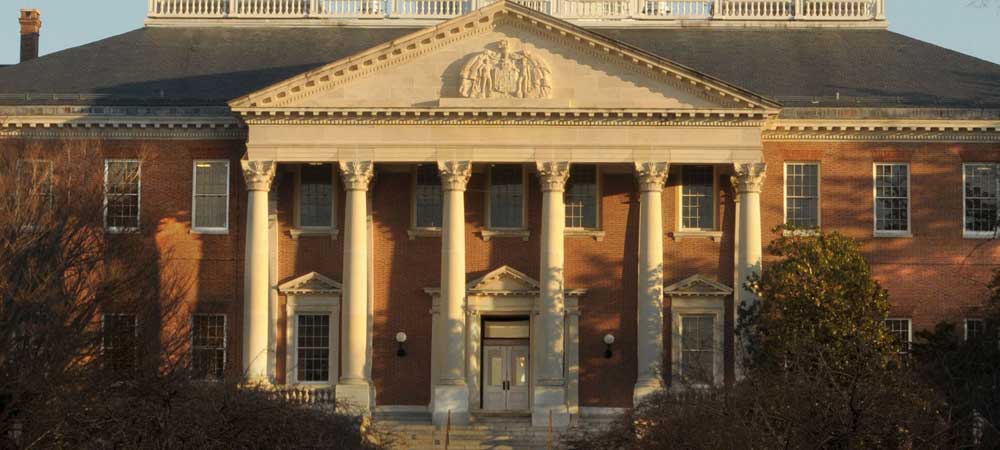- Maryland sports betting could become a reality in 2020 after the Committee heard new bills on the topic.
- This would then allow residents to vote on whether to legalize it or not on the November 2020 ballot.
- Potential profits from the sports gambling market could see at least 20% going toward the Education Trust Fund.
ANNAPOLIS, Md. – Maryland sports betting may become a reality for residents as Senate bills for the pastime were heard by the Committee on Wednesday. The state’s legislative session ends in April.
If neither bill goes on to pass for voting this Fall, the Free State will have to wait until 2022 for another chance to legalize the wagering on sports. Maryland, by law, only allows the state to deal with changes to gambling laws within even-year sessions.
Sports Betting In Maryland
The people of Maryland are ready to see sports betting become a legal thing to do. The state is home to big professional teams like the Baltimore Ravens and the Baltimore Orioles. These teams have plenty of diehard fans that would love to get some skin in on the matchups if they could legally do so with their state.
Residents have chimed in with thoughts surrounding the issue. “We all love sports, we all watch sports, we all tend to bet. Why not cash in on it?” said Marylander Vernon Ashlock.
While the sports betting bills that were discussed with lawmakers all want to make the hobby legal, they differ when it comes to where the activity should take place. For Senate Committee member Craig Zucker’s bill MD SB4, physical locations would have the opportunity to open up internet sportsbooks by partnering with online sports betting operators.
“This is really sort of the next phase of gaming, when you are looking at millennials and making it more accessible to the modern age of Marylanders,” said Zucker.
Another bill, sponsored by Senate Committee member Chris West, MD SB 58 would let casinos and horse racing tracks become eligible to open sports betting lounges at their businesses. Internet and mobile applications were not included within this bill. Maryland has six casinos and five tracks where potential sportsbooks could open.
Tax rates for these Maryland sports betting bills will be in line with the casino table games at a rate of 20% on all revenue made by the new activity. This rate is stipulated in both bills that have been set before legislatures.
It has also been agreed upon that the bulk of the revenue would go toward funding the Maryland education system.
The Committee Hearing
The hearing, which was open to the public, had 37 speakers when wagering on sporting events was brought to the floor. Zucker said that he believed in a law that would be both transparent and have complete integrity toward sports matchups.
Zucker is the sponsor behind MD SB 4. Before leaving the microphone, he wanted to be sure lawmakers knew that it was “important for Maryland to be able to stay competitive with neighboring states” and how legalizing sports betting would do that.
Sports bettors in the state believe that making the wagering on sporting events legal will help the economy with its new revenue stream. Surrounding states are currently profiting off of the business of gamblers that want to bet on sports from Maryland.
If the Committee does not allow for either of these bills to pass for a public vote in the Fall, that’s all a loss of potential profit while leaving the Free State in the Dark Ages with the sports gambling market.
While casinos, residents, and horse race tracks are all behind the legalizing of the pastime, Zucker’s bill does not talk about horse race tracks being allowed to open sportsbooks at their venues.
Alan Foreman, the Chairman, and CEO of the National Thoroughbred Racing Association spoke up on wanting tracks to be included for legal sportsbooks. He told the Committee that horse racing in the state has “expanded commercial gaming.”
Horse racing tracks have spiked revenue in gaming from $418 million to $621 million as per Foreman when giving his reasons on the inclusion of tracks to MD SB 4.
One last amendment request came in the form of the tax rate. Lawmakers believe lowering the rate to 10-15 percent rather than the 20% both bills suggest will help to make sports betting legal. It was said that a lower tax rate will help sports bettors in the communities of Maryland steer clear of black-market betting which equates to consumer protection for all sports betting Marylanders.
With the session being open through April, there is time to fix anything the legislature may not agree with on these bills and give them time to go over the possible amendments they heard.
Legalization would give the Free State a fighting chance at competing in the sports betting market if they added either bill to the ballot at the end of 2020. If not, waiting until 2022 for their next chance may be too big of a gamble for Maryland to risk.
Advertising Disclosure
In order to provide you with the best independent sports betting news and content LegalSportsBetting.com may receive a commission from partners when you make a purchase through a link on our site.
News tags: Alan Foreman | Baltimore Orioles | Baltimore Ravens | Chris West | Craig Zucker | Education Trust Fund | Maryland | MD SB 58 | MD SB4 | National Thoroughbred Racing Association

Christina has been writing for as long as she can remember and does dedicated research on the newly regulated sports betting market. She comes from a family of sports lovers that engage in friendly bets from time to time. During the winter months, you can find Christina baking cookies and beating the entire staff at Mario Kart…the N64 version of course.


 Bitcoin Sports Betting Sites
Bitcoin Sports Betting Sites Best Online Sports Betting
Best Online Sports Betting Famous Sports Bettors
Famous Sports Bettors States With Legal Sports Betting
States With Legal Sports Betting Sports Betting Events
Sports Betting Events




